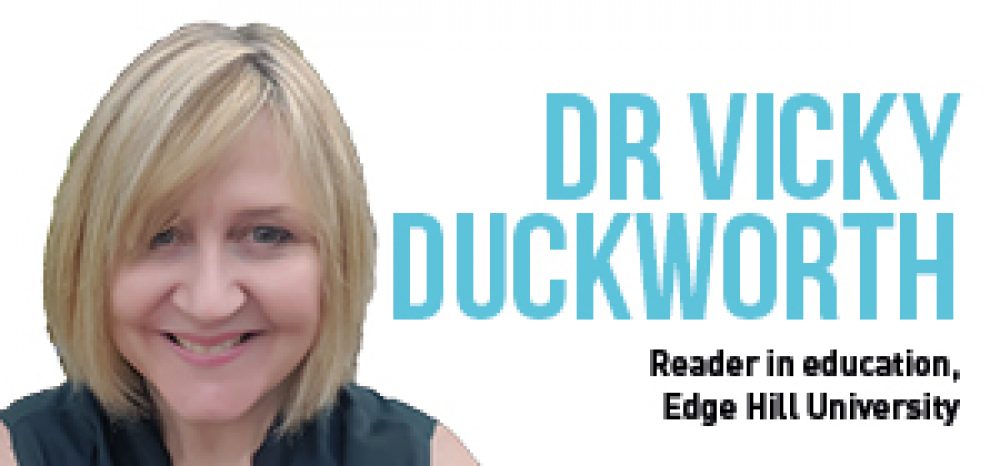Our further education providers are crucial for challenging inequality and transforming lives in 21st century post-austerity Britain, say Vicky Duckworth and Rob Smith
Further education provides a host of social benefits that have remained largely unmeasured – precisely because they can be hard to quantify.
To this end, we recently completed a research project to discover and describe some of the benefits that are often not reflected in traditional measures of success.
The research cuts across the grain of the current skills policy discourse, providing a picture of transformative teaching and learning taking root and flourishing in the sometimes stony ground of further education.
Evidence from the project exposes how, despite straitened finances and the constraints of a constantly changing annual funding methodology that incentivises college self-interest and gaming, further education providers continue to empower people and their communities.
In doing so, colleges challenge the stubborn cycle of intergenerational inequality and offer a transformative experience that enhances agency and hope for the project participants, their families and communities.
Adult education courses for young and older adults offer a second chance of re-engaging with education
Empowerment
Accounts from learners demonstrate that further education courses are pathways to overcoming economic, social, political and cultural marginalisation.
David, from a traveller background, said his motivations for learning are so he can read to his four-year-old daughter. But he also wanted to take part in our democratic processes.
“You need education to know what’s going on outside: the politics and all that. I’d never voted in my life, ever,” he said. “I read the thing that came through the letterbox and I voted for the first time.”
Mental health and wellbeing
Further education also has a positive effect on mental health and wellbeing. For several of the participants, further education offered a lifeline that helped in their recovery.
Nyomi’s partner had a long-term illness and when she had a child she became depressed and felt locked in a spiral of despair.
Encouraged by her health visitor, she attended a course at college, where she felt accepted for who she was, and a year later has begun studying a podiatry degree. Now her partner is also beginning to study. Together they want to improve their lives and provide for their daughter.
Clearly, adult education courses for young and older adults offer a second chance of re-engaging with education. These courses can contribute to personal development, lead to the development of soft skills such as confidence, and consequently provide economic, social and health related benefits. Juxtaposed with this, adult education courses offer people opportunities of acquiring the tools needed to run their own lives.
Adult Education and Integration
Chaima grew up in Oldham. Her experience at school ended in disillusion and poor qualifications.
Entering further education, she rediscovered her learning identity and, with the support of teachers who believed in her, she worked steadily until she gained entry to higher education. Further education provided a space where she met people from other walks of life and, very importantly, learnt about cultures outside that of the Bangladeshi community.
“I learnt about them and their community and they learnt about me and my community as well,” she said. “It eliminates that ignorance.”
Chaima’s comments highlight the often overlooked role of further education colleges in providing integrated social spaces that have the potential to foster social cohesion in our diverse urban centres.
A decade on from the financial crisis that introduced public spending cuts across the UK, we have yet to emerge from quagmire of the politics of austerity. Yet a transformative curriculum delivered in a further education setting is able to challenge rather than reproduce social inequality.
Our findings are particularly interesting for commissioners of a range of services in cities and devolved administrations. With devolved budgets and outcome-based local commissioning arrangements, over the coming years we are likely to see changes to the way adult learning and education works. This requires joined-up thinking across discipline areas, and a cohesive approach that challenges inequality and moves towards social justice is a necessity.
It’s time to recognise these important contributions and to re-prioritise educational funding to reflect this new understanding.
Dr Vicky Duckworth is a reader in education at Edge Hill University and Dr Rob Smith is a reader in education at Birmingham City University. Find out more about the UCU FE: Transforming lives and communities project here








Great article! I’ve worked with adult (returning) learners for over 20 years and consistently see the positive impact a supportive FE provision can have -an impact that conventional indicators cannot capture.